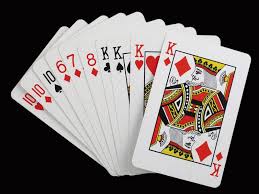Rummy Card Game, Rummy is a timeless card game enjoyed by millions around the world. Known for its engaging gameplay and strategic depth, rummy has a rich history and comes in many variations. This article explores the origins, rules, and strategies of rummy, as well as its enduring appeal.
Origins of Rummy
The exact origins of rummy are unclear, but it is believed to have evolved from several different card games played in various cultures. Some historians trace its roots back to the Mexican game Conquian, while others suggest it has connections to the Chinese game Mahjong. Regardless of its precise beginnings, rummy has become a staple in the world of card games.
Basic Rules of Rummy
The primary objective in rummy is to form sets and sequences using the cards in your hand. Here’s a basic rundown of how to play:
- Number of Players: Rummy can be played by 2 to 6 players.
- Deck: Typically, a standard deck of 52 cards is used. For larger groups or specific variations, two decks and jokers may be used.
- Dealing: Each player is dealt a set number of cards (usually 13 in standard rummy). The remaining cards form the draw pile, with the top card placed face-up to start the discard pile.
- Gameplay:
- Players take turns drawing a card from either the draw pile or the discard pile.
- Players then discard one card from their hand to the discard pile.
- The goal is to form valid sets (three or four of a kind) and sequences (three or more consecutive cards of the same suit).
- Winning: The first player to form valid sets and sequences with all their cards, and discard their last card, wins the game. The other players then tally their remaining cards to determine their scores.
Popular Variations of Rummy
Rummy has numerous variations, each with its own unique twist on the classic game:
- Gin Rummy: Played with 2 players, where the objective is to score points by forming melds and knocking before the opponent.
- Indian Rummy: A popular variation in India, typically played with 13 cards and two decks, with the goal of forming valid sets and sequences.
- Contract Rummy: Players must meet specific contract requirements in each round, with increasing difficulty as the game progresses.
- Kalooki: Involves more strategy and is played with jokers, which can act as wild cards.
Strategies for Winning at Rummy
- Form Sequences Early: Focus on creating sequences as soon as possible since they are harder to complete than sets.
- Discard High-Value Cards: Get rid of high-value cards that are not part of any melds to minimize your potential score if an opponent wins.
- Observe Opponents: Pay attention to the cards your opponents pick and discard to gauge their strategies and adjust yours accordingly.
- Use Jokers Wisely: Jokers can be game-changers, so use them to complete critical sequences or sets.
The Enduring Appeal of Rummy
Rummy’s appeal lies in its perfect balance of luck and skill. While the draw of the cards involves chance, players’ strategic decisions significantly impact the outcome. Its simplicity makes it accessible to beginners, yet the depth and variety of strategies keep experienced players engaged.
Rummy in the Digital Age
With the advent of technology, rummy has found a new home online. Numerous apps and websites offer rummy games, allowing players to compete against others from around the world. Online rummy platforms provide various game modes, tournaments, and even real-money games, adding a new dimension to this classic card game.
Conclusion
Rummy is a versatile and engaging card game that has stood the test of time. Whether played casually with friends and family or competitively online, rummy offers endless hours of entertainment. Its blend of luck and strategy, combined with its rich history and numerous variations, ensures that rummy will remain a beloved game for generations to come.





